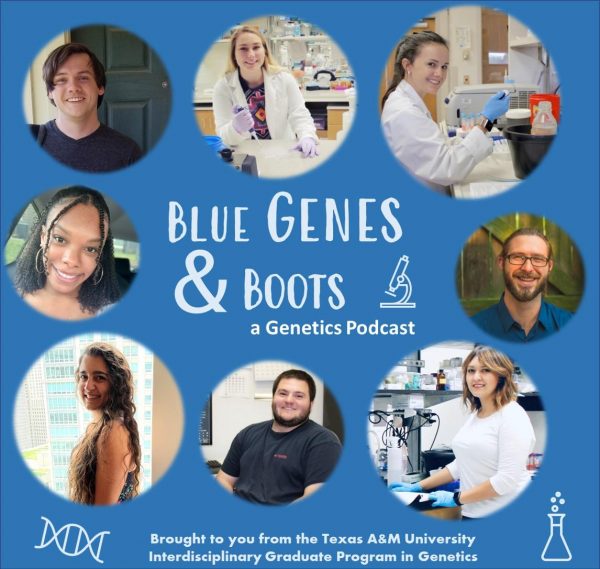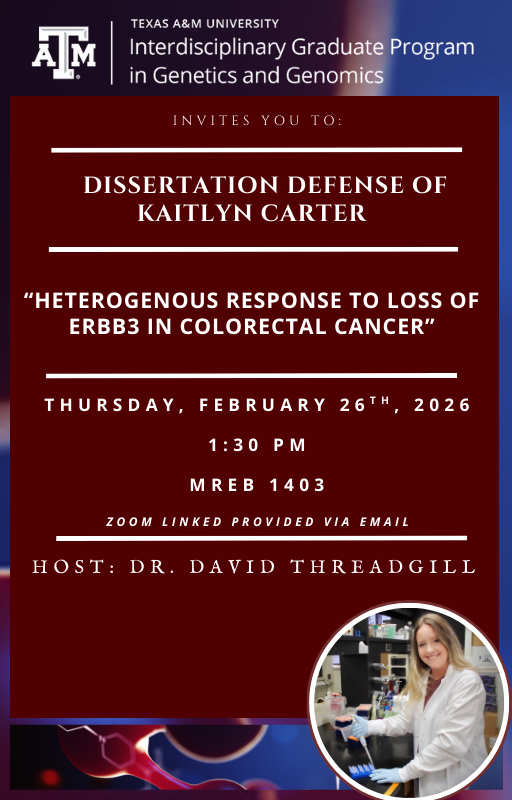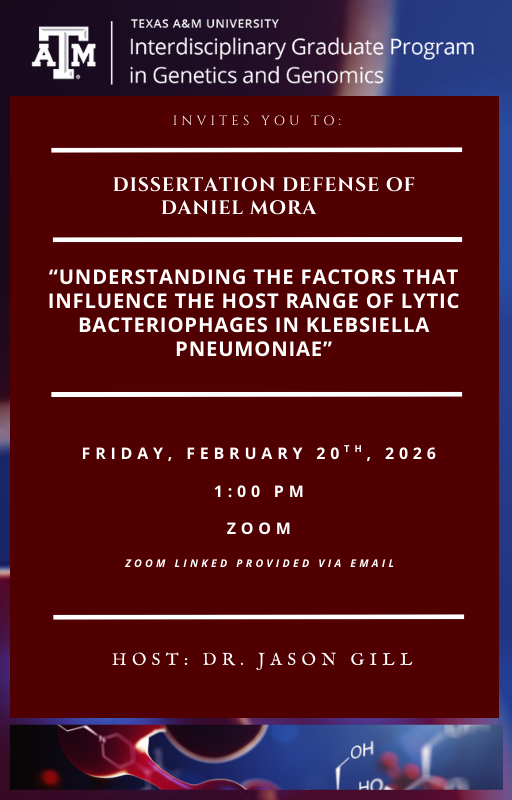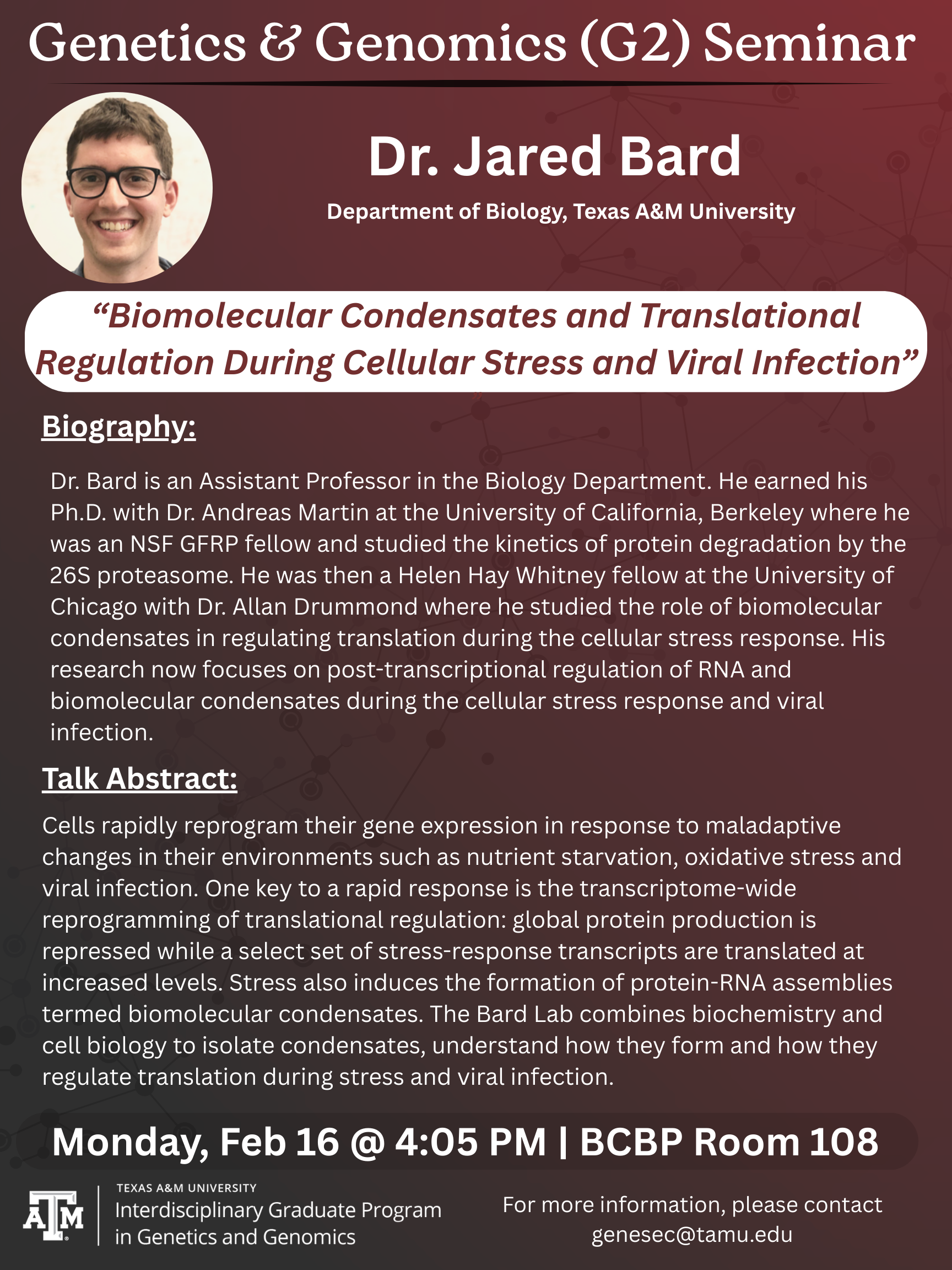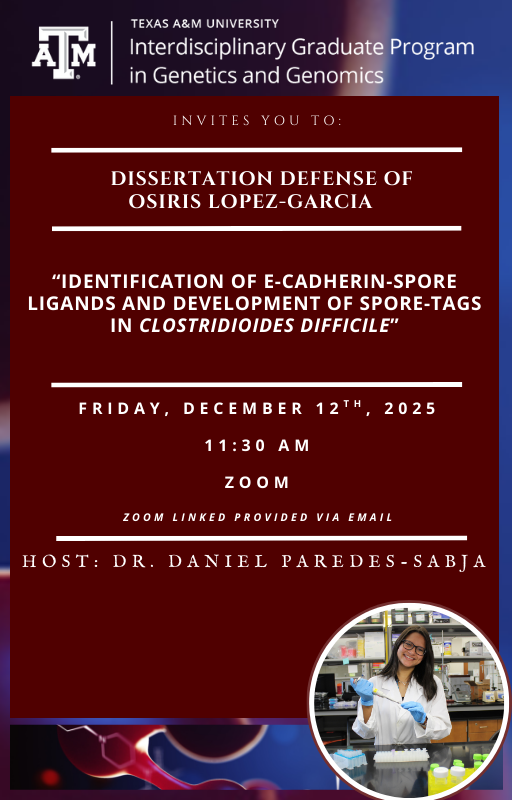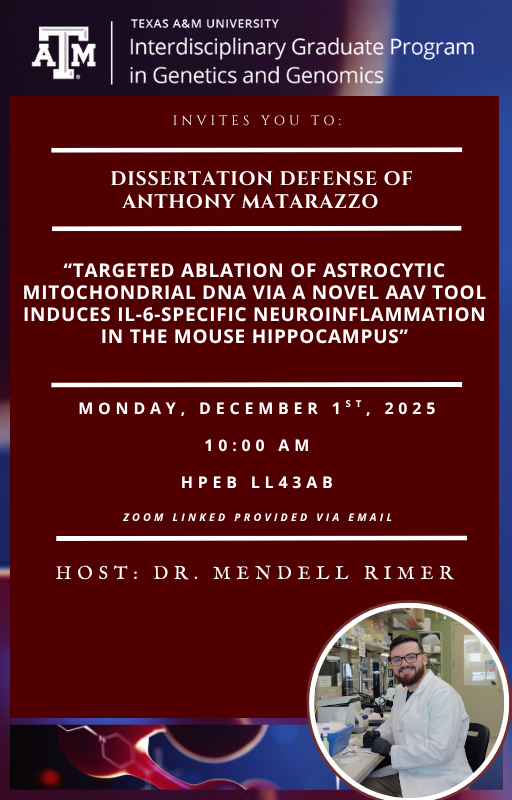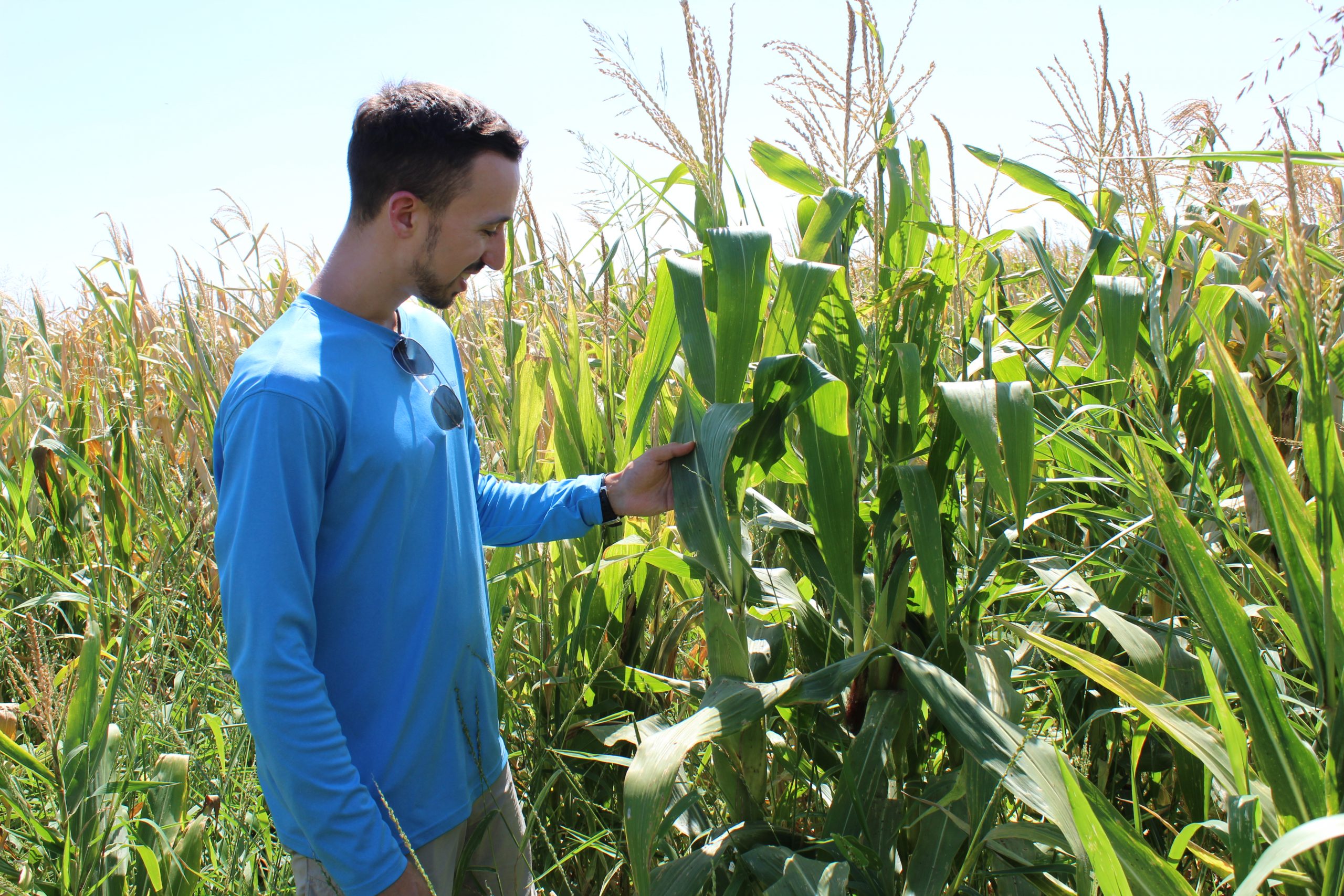
Welcome to the Graduate Program in Genetics and Genomics
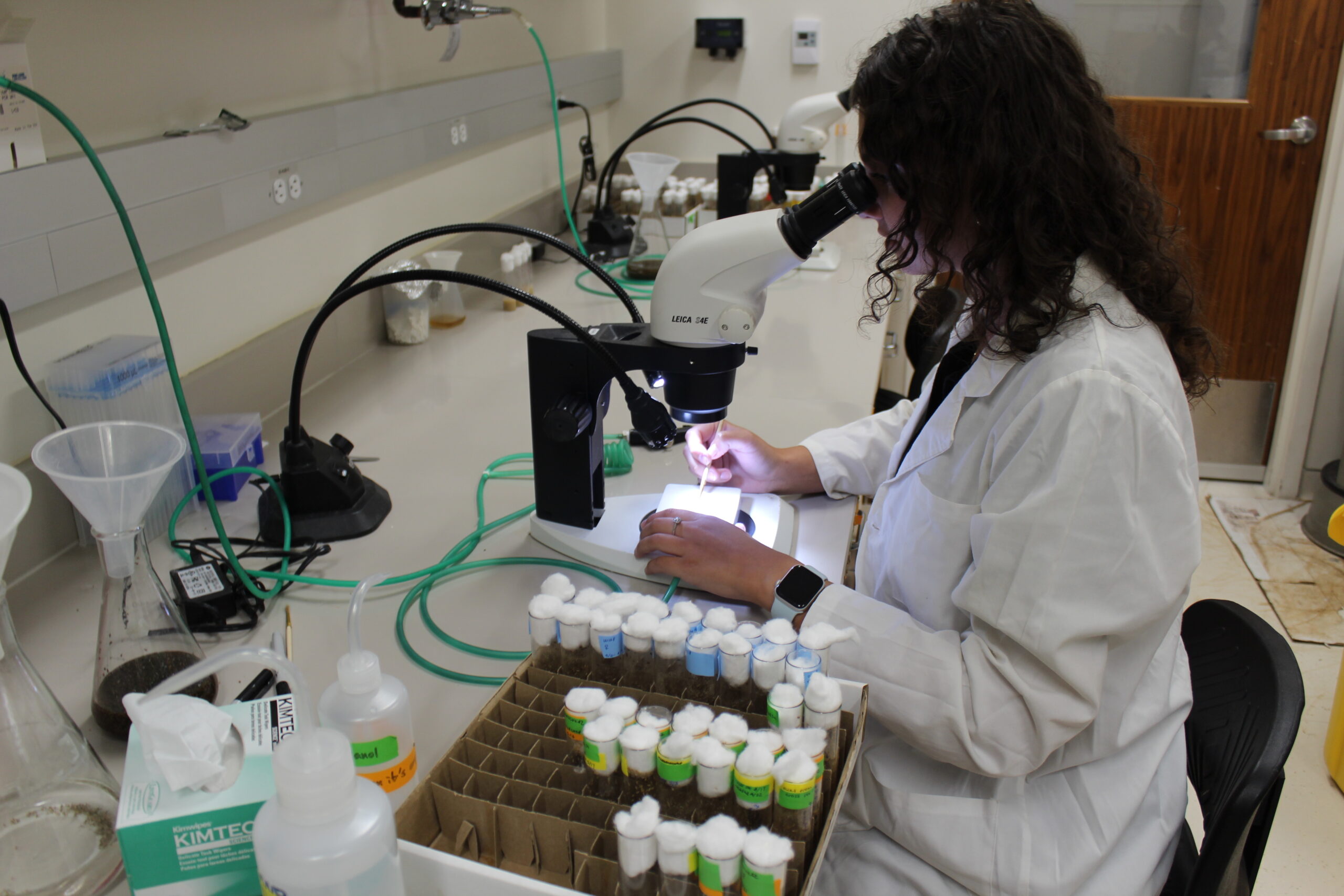
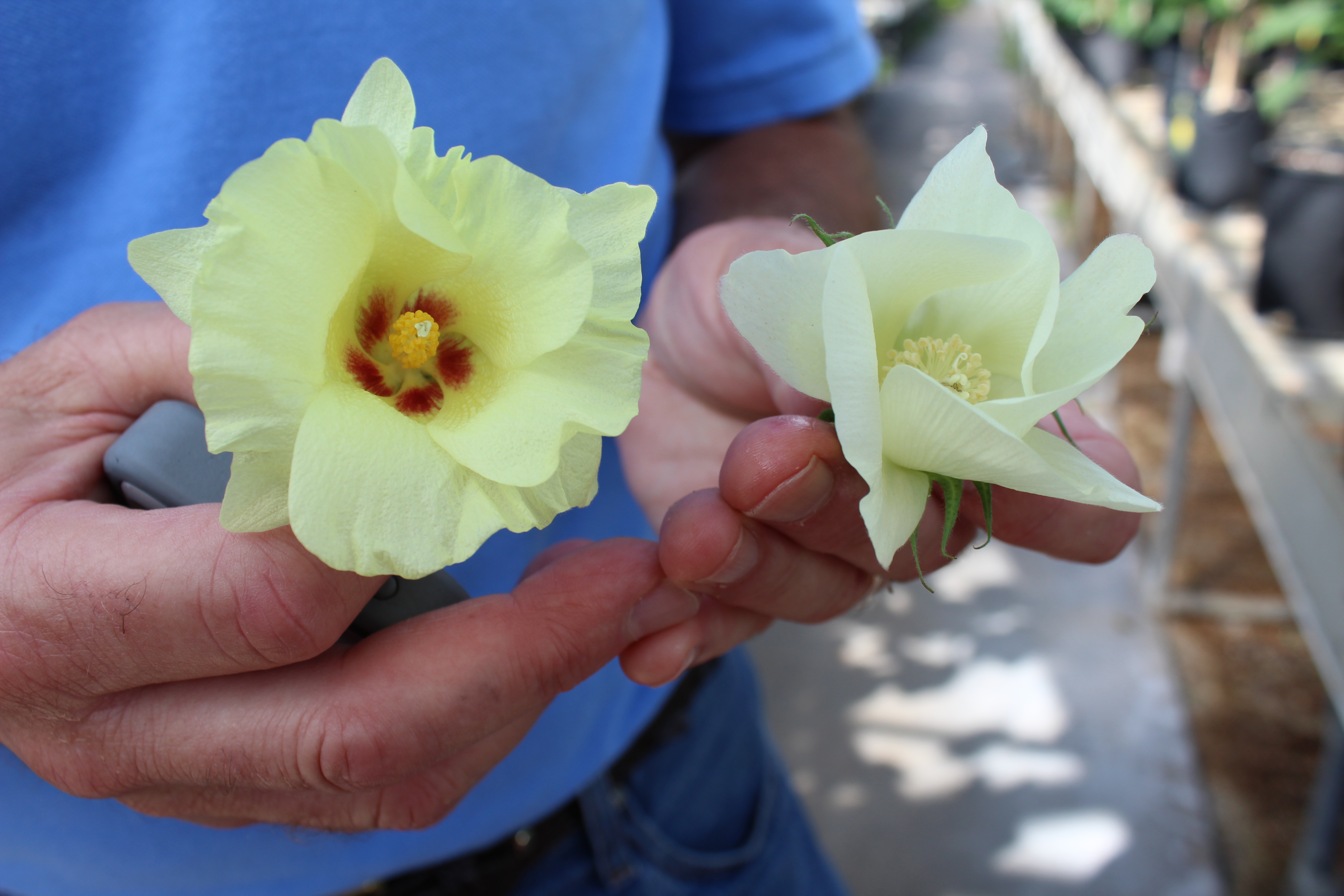
Welcome to the Graduate Program in Genetics and Genomics
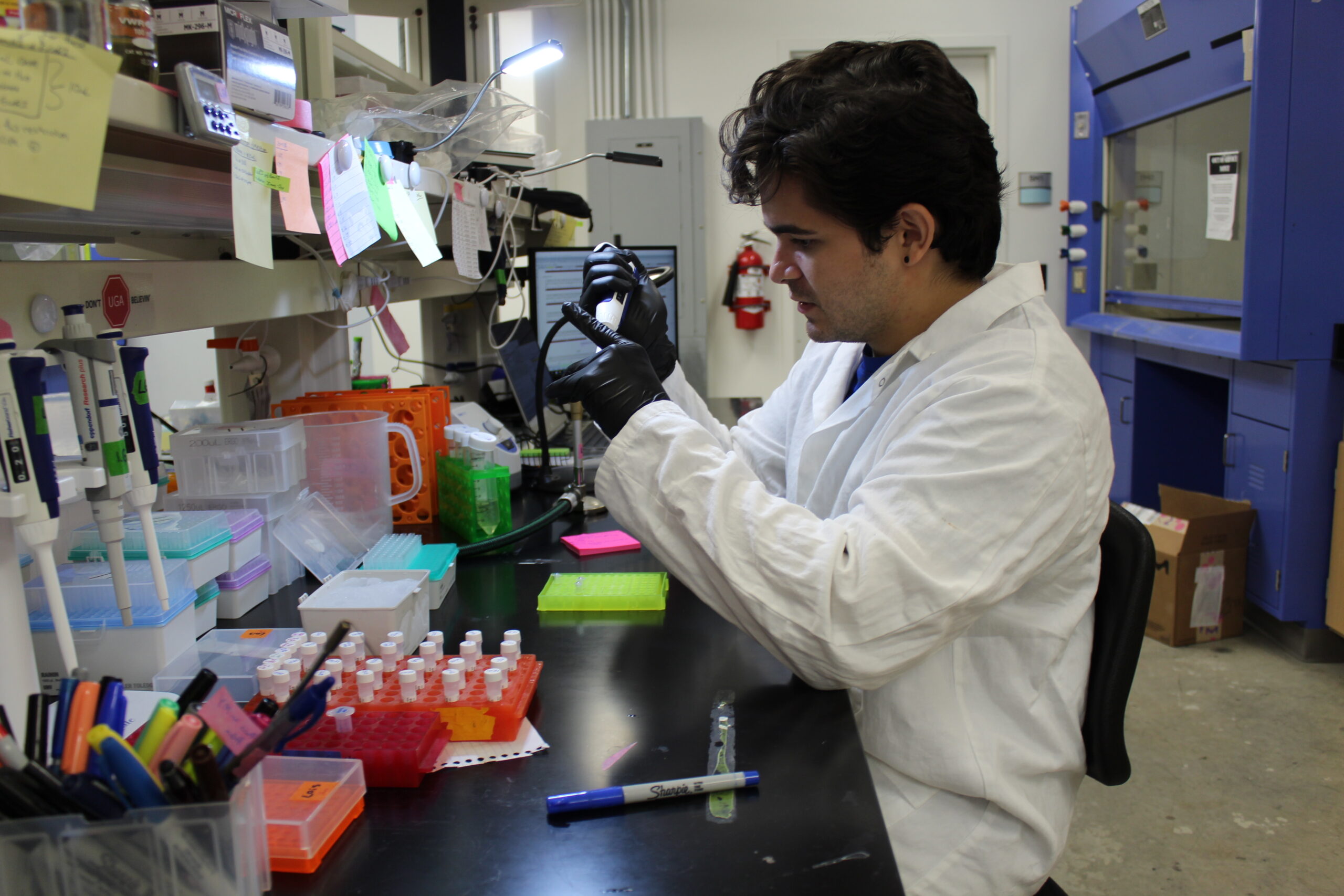

Welcome to the Graduate Program in Genetics and Genomics
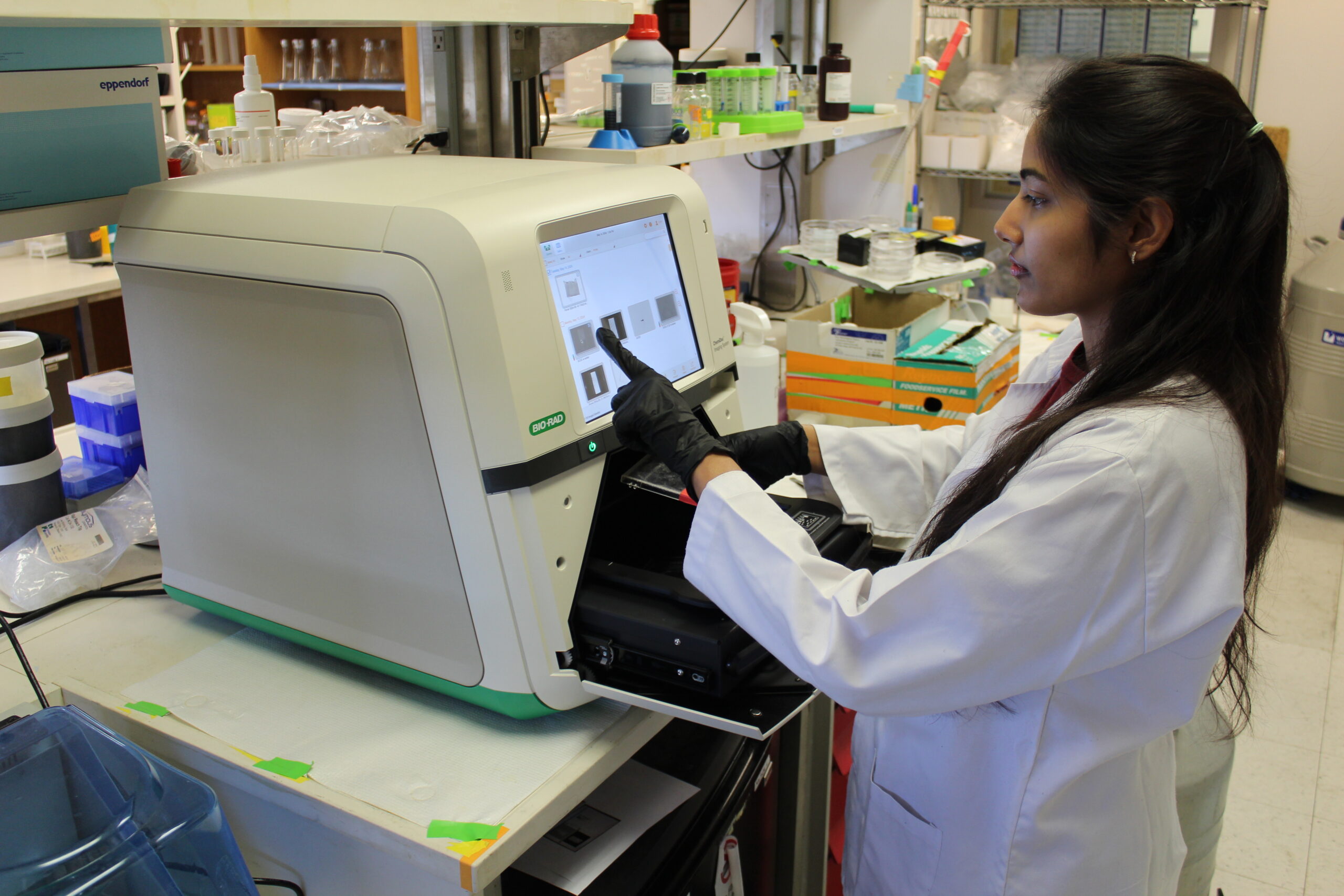

Welcome to the Graduate Program in Genetics and Genomics


Welcome to the Graduate Program in Genetics and Genomics


Welcome to the Graduate Program in Genetics and Genomics

TEXAS A&M GENETICS AND GENOMICS PHD PROGRAM OVERVIEW
2025 GGEN PH.D. INCOMING STUDENTS
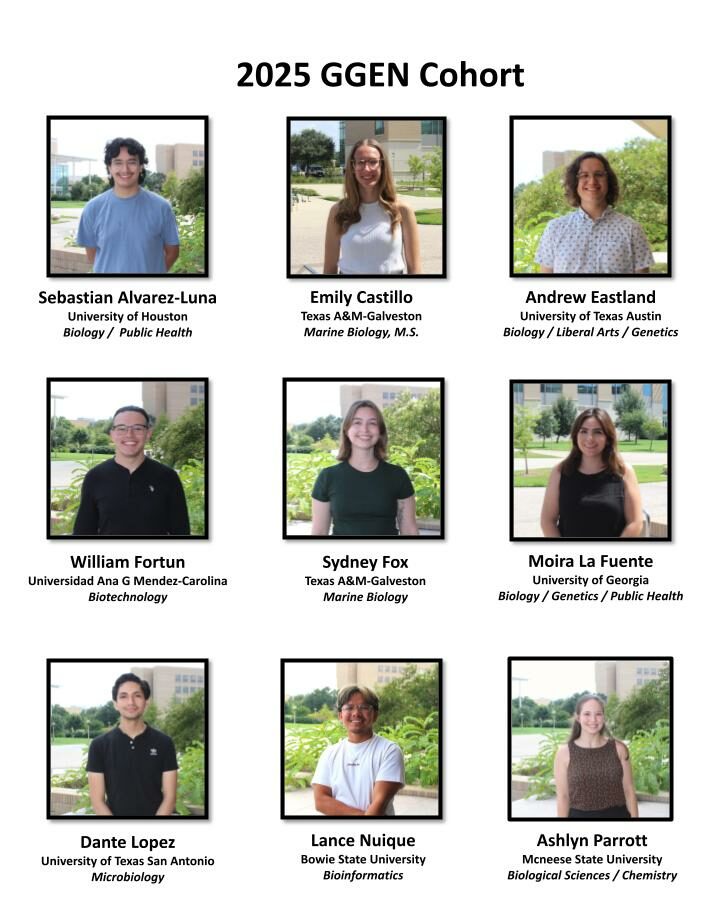
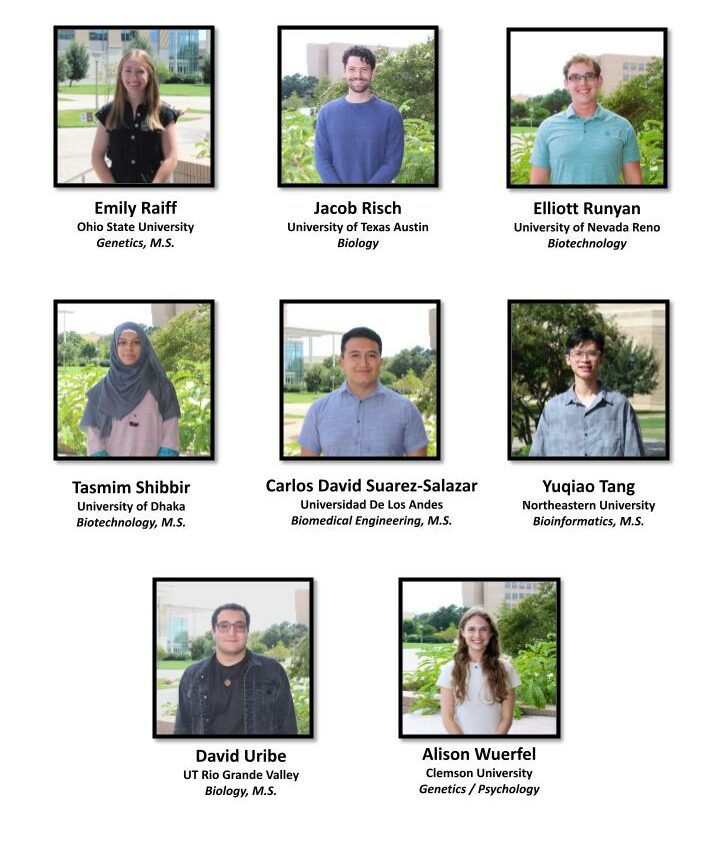
BLUE GENES AND BOOTS – GENETICS & GENOMICS PODCAST
Interested in science and learning about the grad student life? We talk to world-class faculty about their research at Texas A&M and hear first-hand from grad students about how to thrive in a PhD program.
Check us out now!
EVENTS
Current Month
february
december


